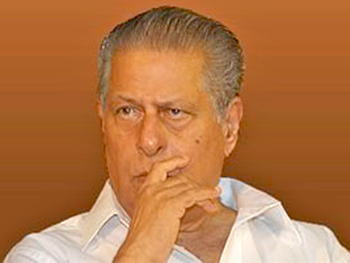
A former minister, Raghavan (81) had been confined to home for the last two years due to Pakrinsons disease besides age-related ailments.
He breathed his last at nearby Pariyaram Co-operative Medical College Hospital, an institution founded by him, according to his family.
Once a firebrand CPI(M) leader, Raghavan was expelled from the party in 1986 following sharp differences with the leadership.
A virulent face of the CPI(M) in the party bastion Kannur, he had a vital role in building its youth front.
He was forced to go out of the party after the leadership rejected the 'alternative' tactical line he pressed, which made a strong case for an alliance with Indian Union Muslim League (IUML) to take on the Congress-led UDF in the state.
While several leaders, including former chief minister E K Nayanar, backed his line initially, most of them eventually toed the party's official policy.
But Raghavan stood firm by his theory, leading to his expulsion along with some of his close collaborators from the CPI(M) and formation of CMP.
Ironically, CMP straightaway joined the UDF with the late Congress veteran K Karunakaran blessing the union, atoning Raghavan's past when he used to be the spearhead of CPI(M)'s attack on him in the state assembly and outside.
A long-time legislator,known for his acerbic tongue and a penchant for provocations, Raghavan was elected to the assembly three times after his expulsion from CPI(M).
He served as minister for Co-operation in 1991-1996 and 2001-06 UDF ministries.
He is survived by wife, a daughter and three sons, two of whom -- M V Girish Kumar and M V Nikesh Kumar -- are journalists.
A faction of the CMP, including some of his family members, recently pulled out of the UDF and moved closer to the LDF.
Raghavan proved to be one of the few leaders in Kerala who kept up their relevance after being expelled from the CPI-M.
In the days that followed his expulsion, he was virtually hounded by the party cadres across the state but with true grit he carried forward belying predictions of stalwarts like E M S Namboodiripoad that he would soon prove to be a 'damp squib.'
Melath Veettil Raghavan was born in a family of modest means in Pappinassery in Kannur District on May 5, 1933.
A primary school drop-out, he was attracted to Communism as a teenager inspired by speeches of leaders like A K Gopalan.
Acknowledging his organisational skill and ideological resolve, he was drafted as a whole-timer of the party soon and was sent for work in different parts of north Malabar, the cradle of Communism in Kerala which witnessed several mass uprisings.
He rose to organisational prominence after the 1964 split in the movement and became CPI(M) District Secretary in Kannur three years later.
Raghavan's influence among the party cadre was so strong that he prevented many of them deserting the party to become Naxalites, which had its bases in areas like Wayanad in late 1960s.
He was elected on the CPI(M) ticket to the assembly in 1970, 1977, 1980 and 1982 and was the most aggressive face of the party in the house, who unleashed vituperative attacks on the Congress and the CPI leaders, often bothering little about their stature or parliamentary norms.
The days that led to his expulsion from the CPI(M) was one of the turbulent phases in the history of the party.
Clinging to his line despite being aware of the consequences, Raghavan had then locked horns even with veterans like Namboodiripad and V S Achuthanandan.






Comments
Add new comment